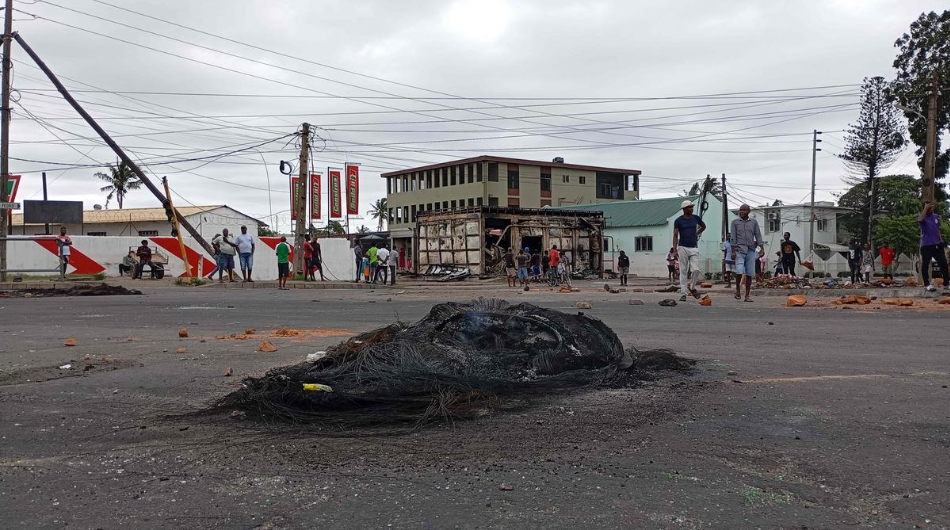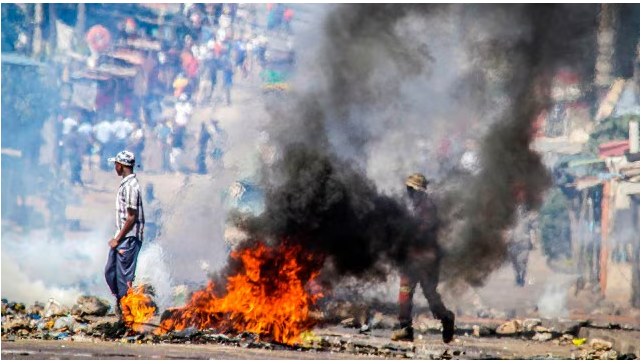Introduction
Mozambique is grappling with violent unrest following a contentious ruling by the Constitutional Council on recent elections. At least 21 people have lost their lives in protests and clashes that erupted across the country, underscoring deep-seated political tensions and public frustration with perceived electoral irregularities. The events mark one of the most severe outbreaks of violence in the nation since its transition to multi-party democracy in the 1990s.
This article delves into the origins of the unrest, its implications for Mozambique’s political stability, and the wider repercussions for democratic governance in the region.
Background to the Crisis
The unrest stems from the October elections, Mozambique: during which opposition groups and civil society organizations raised allegations of widespread fraud and misconduct. These accusations included voter suppression, tampering with results, and the misuse of state resources by the ruling party, FRELIMO (Front for the Liberation of Mozambique).
The Constitutional Council, Mozambique’s top judicial authority, was tasked with addressing these disputes. Its decision on Monday upheld the victory of FRELIMO’s candidate, Mozambique: effectively dismissing the opposition’s claims of irregularities. This sparked immediate outrage, with protesters taking to the streets in major cities like Maputo, Beira, and Nampula.
The Constitutional Council’s Ruling
The Council’s decision reaffirmed the official results, Mozambique: which had granted FRELIMO a significant majority in the legislature and victory in the presidential race. Its justification included:
- Insufficient Evidence of Fraud: The court argued that allegations presented by opposition parties, including RENAMO (Mozambican National Resistance), lacked substantial evidence.
- Defense of Electoral Commission: It upheld the integrity of Mozambique’s National Electoral Commission (CNE), asserting that procedural lapses were not significant enough to invalidate the results.
- Finality of Judgment: The Constitutional Council emphasized that its ruling was final and binding, leaving no room for further legal challenges.
 For the more information click on this link
For the more information click on this link
Outbreak of Violence
The ruling prompted an eruption of violent protests as thousands of demonstrators clashed with police and security forces. Protesters accused the government and judiciary of orchestrating a “sham election” to maintain the dominance of FRELIMO.
Key Locations of Violence
- Maputo: The capital witnessed large-scale demonstrations, with protestors blocking roads, burning tires, and attacking government buildings.
- Beira: Security forces were deployed heavily in Beira, where some of the deadliest confrontations occurred.
- Nampula: Protesters targeted police stations and state offices, leading to retaliatory actions by authorities.
Casualties and Arrests
- At least 21 people were reported dead, including both protestors and law enforcement personnel. Dozens more were injured.
- Authorities arrested hundreds of individuals, accusing opposition leaders of inciting violence.
Government’s Response
President Filipe Nyusi, who was declared the victor of the disputed election, Mozambique: appealed for calm while condemning the unrest. In a televised address, he emphasized:
“Violence will not resolve our differences. Dialogue remains the cornerstone of our democracy.”
However, critics have accused the government of employing excessive force, with reports of live ammunition being used against unarmed protestors.
Role of Opposition and Civil Society
The opposition, led by RENAMO, has vehemently rejected the Constitutional Council’s ruling. RENAMO leaders have called for fresh elections under the supervision of independent international observers, citing rampant electoral fraud and irregularities.
Civil society groups have also played a critical role in amplifying public discontent. Organizations such as the Center for Public Integrity (CIP) have demanded greater transparency in the electoral process and a review of the Constitutional Council’s independence.
Key Drivers of Unrest
The unrest is fueled by a complex interplay of historical, Mozambique: political, and economic factors:
- Historical Rivalries:
- FRELIMO and RENAMO have a contentious history, dating back to Mozambique’s civil war (1977-1992). The peace accords that ended the conflict did not completely reconcile their differences.
- Economic Hardships:
- Widespread poverty and unemployment, compounded by corruption and mismanagement, have left many Mozambicans feeling disillusioned with FRELIMO’s leadership.
- Erosion of Trust in Institutions:
- Public confidence in the judiciary and electoral bodies has eroded due to perceptions of systemic bias toward the ruling party.
- Geopolitical Tensions:
- Mozambique’s growing natural gas industry has heightened stakes in the political arena, with competing interests vying for control over lucrative resources.
Implications for Mozambique’s Stability
The violence raises critical concerns about Mozambique’s political future and democratic stability.
Political Polarization
The unrest highlights entrenched divisions between FRELIMO and opposition factions, exacerbating the risk of prolonged political deadlock and instability.
Weakening Democratic Institutions
Accusations of judicial partiality and electoral misconduct undermine trust in the pillars of Mozambique’s democracy, Mozambique: creating a volatile environment for future elections.
Economic Fallout
The instability threatens investor confidence, Mozambique: particularly in Mozambique’s burgeoning natural gas sector. Ongoing unrest could deter foreign investment and stall critical infrastructure projects.
International Reaction
The international community has responded with concern to the escalating violence in Mozambique:
- African Union (AU):
- The AU has called for calm and dialogue, urging Mozambique’s political actors to resolve differences through peaceful means.
- United Nations (UN):
- The UN has condemned the violence and called for an independent inquiry into allegations of electoral fraud and the use of excessive force.
- Western Nations:
- Countries like the U.S. and European Union members have emphasized the need for credible governance reforms to prevent further unrest.
 For the more information click on this link
For the more information click on this link
- Countries like the U.S. and European Union members have emphasized the need for credible governance reforms to prevent further unrest.
Path to Resolution
Resolving the crisis will require coordinated efforts across multiple fronts:
Dialogue and Mediation
Mozambique’s political actors must engage in meaningful dialogue, Mozambique: with the support of international mediators, to bridge the widening gulf between the ruling party and opposition.
Reforming Electoral Processes
Transparent electoral reforms, including the introduction of international observers, Mozambique: are critical to restoring public confidence in future elections.
Accountability for Violence
Independent investigations into the unrest, Mozambique: with accountability for excessive use of force or incitement, are necessary to prevent future escalations.
Conclusion
The unrest in Mozambique underscores the fragile state of the country’s democracy and the need for urgent reforms. With at least 21 lives lost, the toll of the violence is a stark reminder of the cost of political impasse and institutional failure.
Mozambique’s ability to navigate this crisis will depend on its leadership’s willingness to prioritize the nation’s stability over partisan interests. Only by addressing the root causes of the unrest—electoral transparency, institutional integrity, and economic disparity—can Mozambique hope to move toward a more peaceful and democratic future. ALSO READ:-“The Nation Will Always Be Grateful to Atalji”: PM Modi Hails Vajpayee as the Architect of India’s 21st-Century Transition 2024





